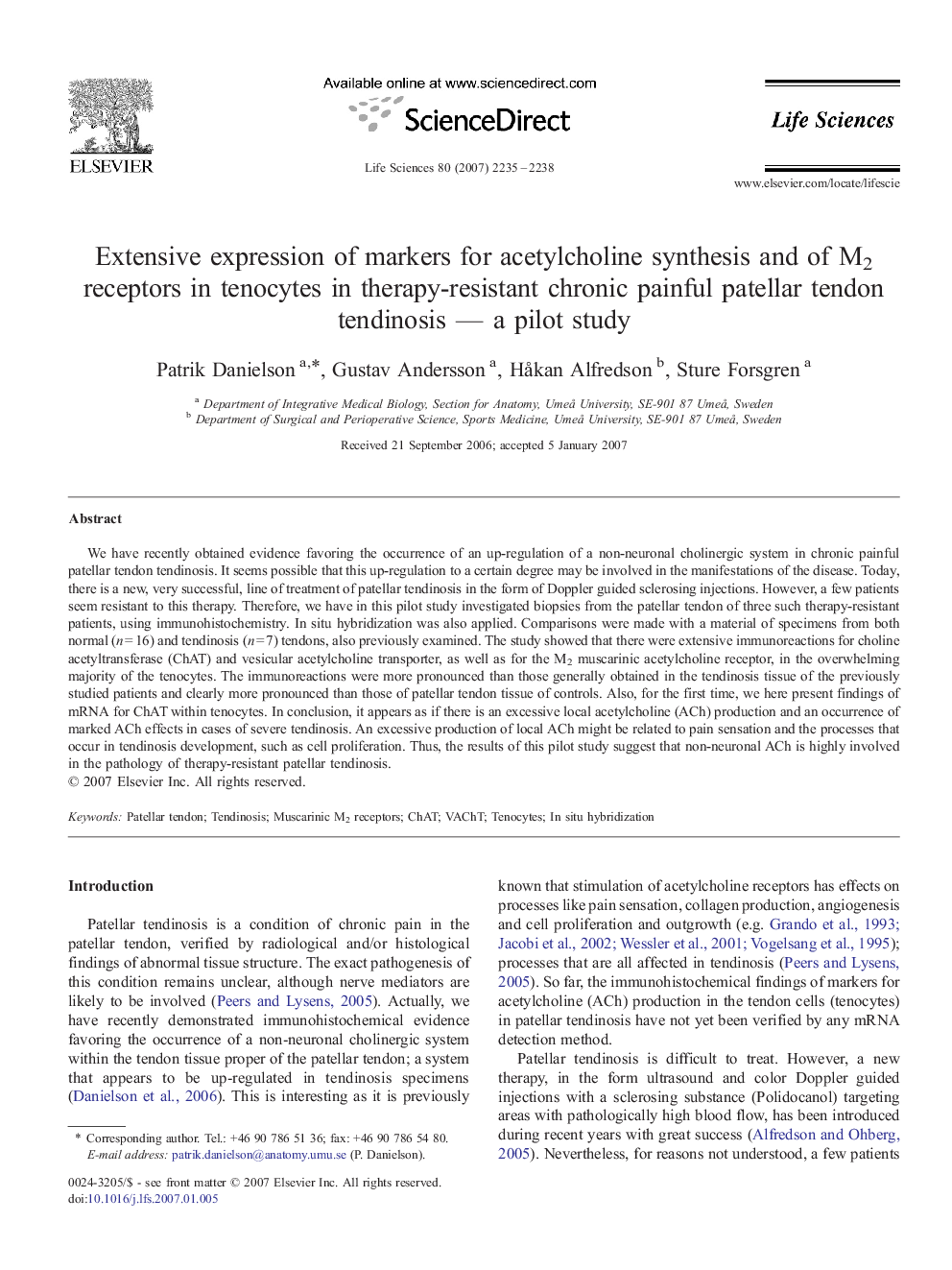| Article ID | Journal | Published Year | Pages | File Type |
|---|---|---|---|---|
| 2553558 | Life Sciences | 2007 | 4 Pages |
We have recently obtained evidence favoring the occurrence of an up-regulation of a non-neuronal cholinergic system in chronic painful patellar tendon tendinosis. It seems possible that this up-regulation to a certain degree may be involved in the manifestations of the disease. Today, there is a new, very successful, line of treatment of patellar tendinosis in the form of Doppler guided sclerosing injections. However, a few patients seem resistant to this therapy. Therefore, we have in this pilot study investigated biopsies from the patellar tendon of three such therapy-resistant patients, using immunohistochemistry. In situ hybridization was also applied. Comparisons were made with a material of specimens from both normal (n = 16) and tendinosis (n = 7) tendons, also previously examined. The study showed that there were extensive immunoreactions for choline acetyltransferase (ChAT) and vesicular acetylcholine transporter, as well as for the M2 muscarinic acetylcholine receptor, in the overwhelming majority of the tenocytes. The immunoreactions were more pronounced than those generally obtained in the tendinosis tissue of the previously studied patients and clearly more pronounced than those of patellar tendon tissue of controls. Also, for the first time, we here present findings of mRNA for ChAT within tenocytes. In conclusion, it appears as if there is an excessive local acetylcholine (ACh) production and an occurrence of marked ACh effects in cases of severe tendinosis. An excessive production of local ACh might be related to pain sensation and the processes that occur in tendinosis development, such as cell proliferation. Thus, the results of this pilot study suggest that non-neuronal ACh is highly involved in the pathology of therapy-resistant patellar tendinosis.
